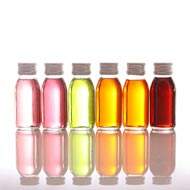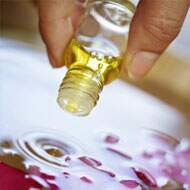Inhaling vapors from essential oil
Aromatic essential oils are used in a lot of different therapeutic scenarios. Though they are usually associated with spa therapies, aromatic essential oils are often recommended by alternative therapists. Aromatherapy is known to create an environment of peace and relaxation, which can be beneficial. However, there is a growing concern about whether or not aromatherapy is really beneficial or can it be harmful as well.
Essential oils are extracted from various parts of different plants. Like any other natural ingredient, some people are allergic to specific plant parts as well. Though most essential oils are known to be safe for human use, they are not regulated by the US Food and Drug Administration.
Aromatherapy's risks to the heart
In a recent study in Taiwan, 100 healthy spa workers were observed, and it was found that those who were exposed to bergamot essential oil during their aromatherapy sessions were prone to developing low blood pressure and heart rate. However, the observation also proves that this lowering in both blood pressure and heart rate usually occurs only when the spa workers were in contact with the essential oils. About one hour after they had stopped working with these oils, the heart rates and the blood pressure went back to normal. The study finally concluded that though limited use of certain essential oils may lower the blood pressure and the heart rate for some time, bringing about a sense of relaxation and peace, prolonged use of these oils may not be as advantageous. For spa workers who work with essential oils every day for several hours at a stretch, the danger of declining cardiovascular health is very real. While there are benefits of aromatherapy, there are clear dangers of it as well.
Competing views
While the Taiwanese study published in “European Journal of Preventative Cardiology” does conclude the possibility of adverse effects to cardiovascular health due to prolonged exposure to essential oils, there are competing views that short-term exposure reduces the risk of cardiovascular diseases and promotes the health of the heart. The Taiwanese study can be interpreted in both these ways, and it is essential for medical scientists to now determine how much is too much of aromatherapy.
While most people who resort to aromatherapy as an alternative healing technique may not directly have prolonged exposure to essential oils, there are others who work in spas and aromatherapy centers who are constantly inhaling vapors from essential oils. It is important to educate these therapists and ensure that they know the possible risks of aromatherapy to their heart. Chemists and aromatherapy practitioners need to disclose such possible risks to their clients as well.
Since essential oils are highly volatile, they may remain in the atmosphere for a very long period. This itself could lead to prolonged exposure. Getting rid of the aroma vapors after an aromatherapy session should also get proper attention. The volatile organic compounds levels in the air should be checked to ensure that the essential oil exposure is maintained at a safe level.
Read more articles from the Aromatherapy Essential Oil Category.

 Find Pose
Find Pose

